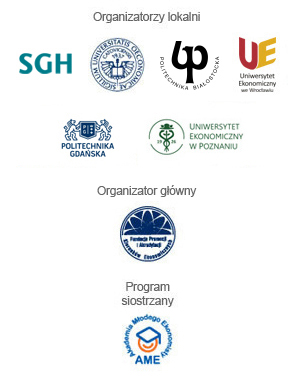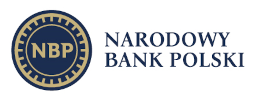Children’s University of Economics (EUD)
I. ASSUMPTIONS AND OBJECTIVES

Children’s University of Economics (EUD) is an all-Poland program of economic education, initiated and run by the Foundation for the Promotion and Accreditation of Economic Education in cooperation with local partners:
- the Warsaw School of Economics (SGH) in Warsaw,
- University of Economics in Katowice,
- University of Bialystok (UwB),
- Poznan University of Economics (EUP),
- Wroclaw University of Economics (UEP),
- University of Szczecin,
- University of Gdańsk.
The offer is addressed to children aged 11-13, pupils of the 5th and 6th grades of elementary schools. The University has been functioning since 1st April 2008. Participation is free of charge.
-
Assumptions of the Program:
- EUD is an edutainment event, which means that its basic assumption is to teach through entertainment.
- EUD operates under the semester system. Each semester, six interesting meetings on economics are organized (each meeting is devoted to one different theme of economics and management).
- The program is focused on issues of management, economics, marketing, economic history, psychology of business, ethics. The organizers do their best so that the level of difficulty of the lectures was adjusted to the age of participants and that the language was intelligible for them. Simplicity of the content is reinforced by different types of multimedia visualizations.
- The lectures are carried out by local partners’ academic lecturers, Fundation’s experts and external specialists.
- The meetings last 90 minutes. They are very interactive – they compose of a lecture and a group workshop. The final element, which summarizes the meeting is a public presentation of teamwork results with a lecturer’s commentary.
- Each EUD student has a student’s registration book. Every time participation in the meeting is confirmed by the registration in the book.
- Participation in 4 out of 6 meetings is required for graduation. Students who participate in all six meetings receive a diploma with distinction.
- At the end of each semester willing students take the final exam. The student who obtains the highest number of points receives a special distinction and a valuable prize – a notebook. In addition, students who obtain high results receive gifts.
- Parents are also invited to lectures, which were prepared according to their needs. The lectures concern issues such as conflicts solving, upbringing, shaping attitudes.
- After each meeting, educational materials, video report and photo gallery are published on the University’s website. The gallery contains not only photos of participants but also of their teamwork results.
-
The aims of Children’s University of Economics:
- promoting entrepreneurial attitudes and behaviors among the youngest;
- developing the ability of independent thinking, making decisions, conscious planning and consistent realization of established targets and flexibility in acting;
- encouraging children to develop themselves, developing the ability of self-learning additional knowledge as well as of effective time management;
- shaping the ability of logic thinking, creative problem solving, effective communication, teamwork;
- developing the ability to transfer knowledge into practical skills;
- preparing the youngest for making right choices through the process of making them aware of the need of implementing ethics both into private life and work;
- promoting the economic education, encouraging the youngest to take closer interest in economic issues.
II. UNIVERSITY MEETINGS
Classes for children
Lectures
Each semester, the curriculum is constructed in such a way to make it possible for children to get to know the most basic ideas of economics and management. So, what can one learn during EUD meetings? Many interesting things! Some of the questions asked by children are: what does it mean to be a leader?; what does it mean to be an entrepreneur?; how to learn faster?; what is a brainstorm?; how does an advertisement convince people?; where does the money come from?; what is the privatization of public sector?; is there an ideal money?; what is a stock exchange?; what psychological traps are waiting for investors?; what are shares?; do products live?; how to train the brain?; can we manage our time?; is education valuable?.
Workshops
Each lecture is related to workshop classes, during which students, in smaller groups, deal with tasks prepared by an instructor. Students are offered help by group moderators – the students of economics and psychology majors. Practical classes of the Children’s University of Economics are most of all fun. Their participants play, try to acts as businessmen, stock investors, managers or marketing specialists.
Classes for students’ parents and caretakers
The organization of simultaneous classes for students’ parents and caretakers was motivated not only by the need of filling their time waiting for children, but also by the willingness to point their attention to important issues, which are though often overlooked in upbringing. One of them is undoubtedly the need for economic education and shaping entrepreneurial attitudes among children through proper fostering interaction. Among other interesting and important issues discussed during the meetings there are following questions: how to teach a child spending money reasonably?; how to bring up children in the era of internet and technology that surrounds as?; how to nurture child’s ethic sensitivity?; how to support children in learning?; what role in the process of shaping assertive attitudes of a child is played by the parent?; whether and how is it possible to foster child’s ability of creative thinking?, how can parents help children in discovering their interests?.
III. OPINIONS
At the end of each semester evaluation questionnaires are being carried out among children and parents. The results of evaluation carried out after the second and the third edition of the Program, as long as opinions of lecturers, parents and children show a very positive reaction on the lectures and their effectiveness. Below we present the chart of answers of the second edition’s students on the question whether they are satisfied with the participation in the lectures (number of questionnaires – 111):





